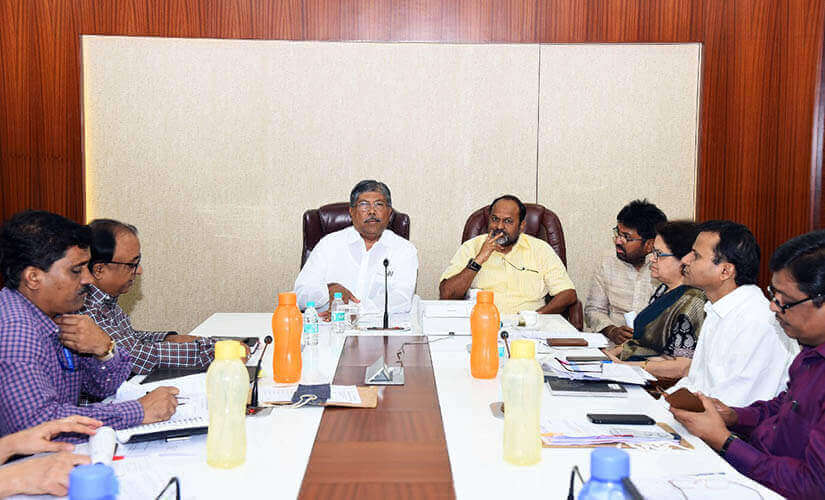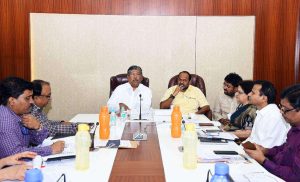To resolve the problem of women who stay in the area where there is a huge scarcity of water or the village is suffering from drought, and also for uniform and genuine distribution of tanker water, Rehabilitation Minister, Mr Chandrakant Patil and the president of the committee took one significant decision to help the victims of natural disasters. This decision is about the installation and mounting of 10,000-liter capacity plastic water tanks in drought-affected villages.
This information was presented by Mr Patil during the meeting, which was aligned to combat the drought situation in Maharashtra. During this meeting, Animal Husbandry, Dairy Development and Fisheries Development State Cabinet Minister Mr Mahadev Jankar, State Minister Arjun Khotkar, Upper Chief Secretary of Rehabilitation Department Medha Gadgil, Upper Chief Secretary of Water Supply Department Shyamlal Goyal, and Agriculture and Employment Guarantee Scheme Secretary Mr Ekanath Dawale were present.
Mr Patil added that 1688 villages are taking the benefit of the water tanker facility but generally when tanker arrives, there is a huge crowd creating an inconvenience for village women. To avoid this inconvenience to women, they are planning to install 10000-litre capacity water tanks contributed from social responsibility funds. They also discussed with a few corporate companies who are going to help them in this matter. There will be 10 tap connections attached to each tank and the tank will be filled with tanker water. This will avoid the problem of huge crowd rush during the tanker water supply. Sufficient amount has already been transferred to a drought-affected area by the state government. They are also careful that this help is offered to the farmers.
It is observed that during the drought situation around 144.42 lakh metric ton dry fodder will be required for cattle. To overcome this requirement, National Agricultural Scheme Fodder Development Programme is implemented for the production of 9.62 lakh metric ton green fodder. 19,878 applications have been accepted for the 85,338-hectare area. They have been provided with 14,906 quintal seeds yet. Harvested crushed area of 18450 hectares is targeted to produce 14.33 lakh metric ton fodder. This information was presented by Mr Patil in the meeting.
According to the requirement, multiple fodder camps will be started
Osmanabad, Jalna, Beed, Parbhani, Ahmednagar, and Aurangabad districts have already started with fodder camps. 7357 cattle are admitted to the camp. Depending on requirements and after reviewing applications, immediate fodder camps can be started in the region and for this procedure, the instructions are given to the District Collector. If the number of cattle is more and any organization or person is ready to open new fodder camp, they can continue with the procedure of opening more than one fodder camp in that region.





